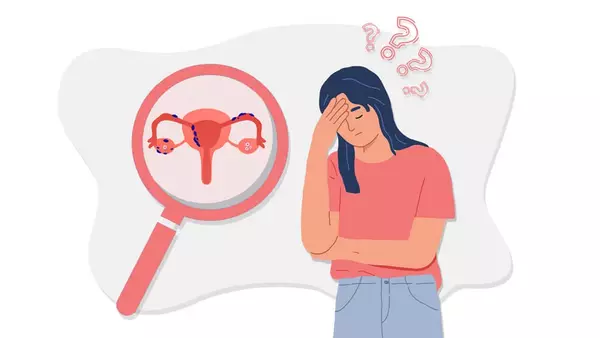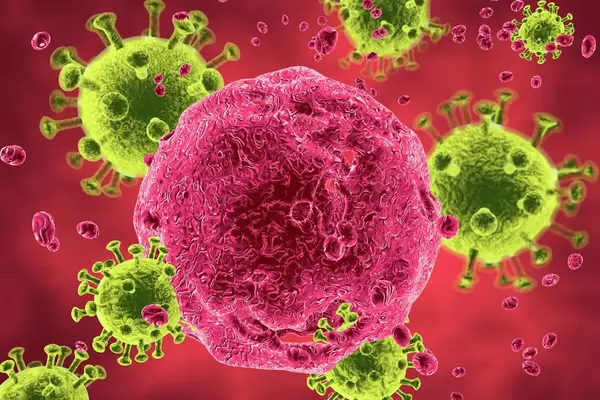Depression is it genetic

If you tested your DNA with a personal genomics service like 23andMe, AncestryDNA, FamilyTreeDNA, MyHeritage or another testing company, you can learn more about your risk factors for hundreds of diseases. By clicking the button above ⬆️, you can upload your raw DNA data file and receive a personalized 250-page health report with research links that is the most comprehensive.
Depression, also referred to as major depression or major depressive disorder, is a psychiatric condition that impacts an individual's mood, behavior, and overall well-being. It results in prolonged feelings of sadness, emptiness, or hopelessness, and a lack of interest in activities that were once enjoyable. Those experiencing depression may also encounter changes in appetite (resulting in overeating or not eating enough), alterations in sleeping patterns (sleeping excessively or experiencing insomnia), a decrease in energy, and difficulty concentrating. Despite being primarily classified as a mental health disorder, depression can also manifest physical symptoms such as headaches, unexplained aches and pains, atypical movements, and digestive issues. A diagnosis of depression requires an individual to exhibit symptoms on a near-daily basis for at least two weeks, although the characteristics of this condition can vary significantly.
It is believed by scientists that 40 percent of individuals who experience depression can attribute it to a genetic connection, while the remaining 60 percent may be influenced by environmental and other factors.
More than 800 families with recurring depression were found to have the chromosome 3p25-26, which a British research team isolated as a gene that seems to be widespread among multiple family members with depression.
The majority of research has focused on SLC6A4, formerly known as SERT, which codes for the serotonin transporter. This transporter is responsible for the reabsorption of serotonin (5-HTT) from the synaptic cleft to the presynaptic neuron, and is crucial in maintaining serotonin levels in the presynaptic region. Additionally, the serotonin reuptake inhibitors used in psychiatry to treat depression, anxiety, and other disorders have sparked interest in this transporter.
The SLC6A4 gene, found on chromosome 17q11.1-17q12 (21), encodes the serotonin transporter. Within the promoter region of SLC6A4, a polymorphism known as 5-HTTLPR (5-hydroxytryptamine transporter-linked polymorphic region) has been linked to the presence of a 44 bp fragment, determining the availability of the long L allele or the absence of the short S allele.
Hu and colleagues discovered the single-nucleotide polymorphism (SNP) rs25531 (A → G) in 2006, which is located near the 5-HTTLPR polymorphism region. This SNP is believed to be in linkage disequilibrium with 5-HTTLPR, and the G variant is exclusively present in L allele carriers. The substitution of A → G results in the emergence of the LG allele, which is functionally equivalent to the 5-HTTLPR S allele.
Another SNP, rs25532 (C → T), was discovered in 2008 in the promoter region of SLC6A4, located near 5-HTTLPR. This SNP alters the function of the 5-HTTLPR/rs2553 polymorphism combination. The LAC allele, which consists of the L allele at the 5-HTTLPR polymorphism and the A and C alleles at the rs25531 and rs25532 polymorphisms, is an alternative that guarantees a significant level of SLC6A4 expression.
A thorough examination of numerous potential genes has been conducted within the framework of the monoamine theory of depression development. Specifically, receptor genes for dopamine (DRD3, DRD4) and serotonin (HTR1A, HTR2A, HTR1B, HTR2C), genes for noradrenaline (SLC6A2) and dopamine (SLC6A3), genes for the enzymes monoamine oxidase A (MAOA), tyrosine hydroxylase (TH), tryptophan hydroxylase 1 (TPH1), catechol-o-methyl transferase (COMT), and the piccolo presynaptic cytomatrix protein (PCLO) have been analyzed. For each of these genes, variations in the form of point mutations or tandem repeat polymorphisms have been identified and linked to specific traits.
Follow the link of the selected polymorphism to read a brief description of how the selected polymorphism affects Depression and see a list of existing studies.
SNP polymorphisms related to the topic Depression:
| rs324650 | Variation in the muscarinic acetylcholine receptor M2 (CHRM2) gene is associated with alcohol dependence and major depressive disorder. |
| rs1799913 | Variants in the tryptophan hydroxylase gene involved in the development and treatment of opiate, heroin and cocaine addiction. |
| rs1386494 | TPH2 gene polymorphism increases the risk and magnitude of depressive disorder. |
| rs6313 | TPH-2 polymorphisms affect response to treatment with antidepressants and SSRIs. |
| rs4570625 | The TPH2 gene variant is associated with attention-deficit/hyperactivity disorder. |
| rs6314 | The serotonin receptor gene HTR2A polymorphism is associated with bipolar affective disorder and autism spectrum disorder. |
| rs1031681 | The neuronal transporter gene SLC6A15 increases the risk of major depression. |
| rs1545843 | The neuronal transporter gene SLC6A15 increases the risk of major depression. |
| rs6305 | Serotonin transporter and serotonin receptor gene polymorphisms are associated with susceptibility to substance abuse. |
| rs110402 | Salivary cortisol response to late evening psychosocial stress depends on the genotype of this CRHR1 polymorphism. |
| rs1360780 | Polymorphisms in the FK506 protein gene are associated with attention deficit hyperactivity disorder and increased daily cortisol levels. It is also associated with an increased risk of depression with an odds ratio of 1.39. |
| rs2061174 | Linkage of the muscarinic acetylcholine receptor M2 (CHRM2) gene to alcohol dependence and major depressive disorder. |
| rs6265 | Increased risk of ADHD or depression. Slightly faster decline in mental abilities in patients with Alzheimer's disease. The presence of this BDNF polymorphism is associated with differences in brain motor system functioning, altered short-term plasticity, and greater error in short-term motor learning. |
| rs6311 | Genetic factors specific to obsessive-compulsive disorder. |
| rs11568817 | Functional polymorphisms in the serotonin receptor gene HTR1B predict increased anger and hostility. |
| rs3800373 | FKBP5 polymorphisms increase symptoms of PTSD and anxiety. |
| rs7997012 | Associations of the serotonin receptor gene HTR2A with bipolar disorder and major depressive disorder. |
| rs1006737 | A polymorphism of the potential-dependent calcium channel gene CACNA1C, is associated with risk of bipolar disorder, schizophrenia and other psychiatric disorders. |
| rs5443 | |
| rs7412 | |
| rs12552 | |
| rs166040 | |
| rs237899 | |
| rs242941 | |
| rs264272 | |
| rs301806 | |
| rs310501 | |
| rs454214 | |
| rs606149 | |
| rs729861 | |
| rs737865 | |
| rs912988 | |
| rs974379 | |
| rs1475120 | |
| rs1549870 | |
| rs1656369 | |
| rs1780436 | |
| rs1805054 | |
| rs1824024 | |
| rs1880916 | |
| rs1954787 | |
| rs2125716 | |
| rs2179744 | |
| rs2422321 | |
| rs2462686 | |
| rs2522833 | |
| rs2721937 | |
| rs2766535 | |
| rs3770018 | |
| rs3827730 | |
| rs4238010 | |
| rs4543289 | |
| rs4625554 | |
| rs6476606 | |
| rs6534441 | |
| rs6537837 | |
| rs7044150 | |
| rs7174755 | |
| rs7647854 | |
| rs7713917 | |
| rs7742824 | |
| rs7757037 | |
| rs7933505 | |
| rs8025231 | |
| rs9601248 | |
| rs9805786 | |
| rs9943849 | |
| rs10065906 | |
| rs10174573 | |
| rs10514299 | |
| rs10520045 | |
| rs10786831 | |
| rs12054895 | |
| rs12065553 | |
| rs12210761 | |
| rs17144465 | |
| rs17750015 | |
About The Author
Li DaliLi Dali, a National Foundation for Outstanding Youth Fund recipient, is a researcher at the School of Life Sciences in East China Normal University. He earned his PhD in genetics from Hunan Normal University in 2007 and conducted collaborative research at Texas A&M University during his doctoral studies. Li Dali and his team have optimized and innovated gene editing technology, leading to the establishment of a world-class system for constructing gene editing disease models.


